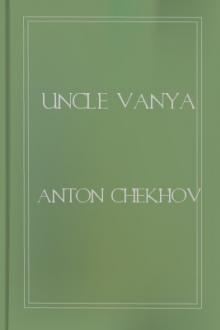Genre Drama. Page - 3
All entire books of the Drama genre on your device.

in the morning we go to the pump-room (though neither my master nor I drink the waters); after breakfast we saunter on the parades, or play a game at billiards; at night we dance; but damn the place, I'm tired of it: their regular hours stupify me--not a fiddle nor a card after eleven!--However, Mr. Faulkland's gentleman and I keep it up a little in private parties;--I'll introduce you there, Thomas--you'll like him much.THOMAS Sure I know Mr. Du-Peigne--you know his master is to marry Madam

ntention, like a horse Full of high feeding, madly hath broke loose And bears down all before him. LORD BARDOLPH. Noble earl, I bring you certain news from Shrewsbury. NORTHUMBERLAND. Good, an God will! LORD BARDOLPH. As good as heart can wish: The king is almost wounded to the death; And, in the fortune of my lord your son, Prince Harry slain outright; and both the Blunts Kill'd by the hand of Douglas; young Prince John, And Westmoreland and Stafford fled the field: And Harry Monmouth's brawn,

ts maywell rank as Ibsen's greatest work. It was the play which firstgave the full measure of his technical and spiritual originalityand daring. It has done far more than any other of his plays to"move boundary-posts." It has advanced the frontiers of dramaticart and implanted new ideals, both technical and intellectual, inthe minds of a whole generation of playwrights. It ranks withHernani and _La Dame aux Camélias_ among the epoch-making playsof the nineteenth century, while in

the tutor of Aglaea. Agathon, Aglaea's father, they say has left her great wealth. Aglaea is adorable. I idolize Aglaea. I must marry Aglaea and I must deal tactfully with Socrates while waiting to hang him.DRIXA: Deal tactfully with Socrates in order that I may have my young man. But why did Agathon allow his daughter into the clutches of that old, flat nosed Socrates, that insufferable fault-finder who corrupts the young and prevents them from frequenting courtesans and the holy mysteries?

s postman when I grow up.WATCHMAN. Ha! ha! Postman, indeed! Rain or shine, rich orpoor, from house to house delivering letters--that's very greatwork! AMAL. That's what I'd like best. What makes you smile so? Oh,yes, your work is great too. When it is silent everywhere in theheat of the noonday, your gong sounds, Dong, dong, dong,-- andsometimes when I wake up at night all of a sudden and find ourlamp blown out, I can hear through the darkness your gong slowlysounding, Dong, dong, dong!

chain off my leg and gits away safe. Maybe I does all dat an' maybe I don't. It's a story I tells you so's you knows I'se de kind of man dat if you evah repeats one words of it, I ends yo' stealin' on dis yearth mighty damn quick!SMITHERS--(terrified) Think I'd peach on yer? Not me! Ain't I always been yer friend? JONES--(suddenly relaxing) Sho' you has -- and you better be. SMITHERS--(recovering his composure--and with it his malice) And just to show yer I'm yer friend, I'll tell yer that bit

he samovar has been on the table fortwo hours, and they are all out walking!VOITSKI. All right, don't get excited; here they come. Voices are heard approaching. SEREBRAKOFF, HELENA, SONIA, andTELEGIN come in from the depths of the garden, returning fromtheir walk. SEREBRAKOFF. Superb! Superb! What beautiful views! TELEGIN. They are wonderful, your Excellency. SONIA. To-morrow we shall go into the woods, shall we, papa? VOITSKI. Ladies and gentlemen, tea is ready. SEREBRAKOFF. Won't you please

to St. John's College, Cambridge." He tells us that he took nodegree, but was later "Master of Arts in both the universities, bytheir favour, not his study." When a mere youth Jonson enlisted asa soldier, trailing his pike in Flanders in the protracted wars ofWilliam the Silent against the Spanish. Jonson was a large andraw-boned lad; he became by his own account in time exceedinglybulky. In chat with his friend William Drummond of Hawthornden,Jonson told how "in his service

e furnish'd me From mine own library with volumes that I prize above my dukedom. Mir. Would I might But ever see that man! Pros. Now I arise: [Resumes his mantle. Sit still, and hear the last of our sea-sorrow. 170 Here in this island we arrived; and here Have I, thy schoolmaster, made thee more profit Than other princesses can, that have more time For vainer hours, and tutors not so careful. Mir. Heavens thank you for't! And now, I pray you, sir, 175 For still 'tis beating in my mind, your

n Douglas; and the Earls of Athol, Of Murray, Angus, and Menteith. And is not this an honourable spoil, A gallant prize? ha, cousin, is it not? WEST. Faith, 'tis a conquest for a prince to boast of. KING. Yea, there thou makest me sad, and makest me sin In envy that my Lord Northumberland Should be the father to so blest a son,-- A son who is the theme of honour's tongue; Amongst a grove, the very straightest plant; Who is sweet Fortune's minion and her pride: Whilst I, by looking on the praise